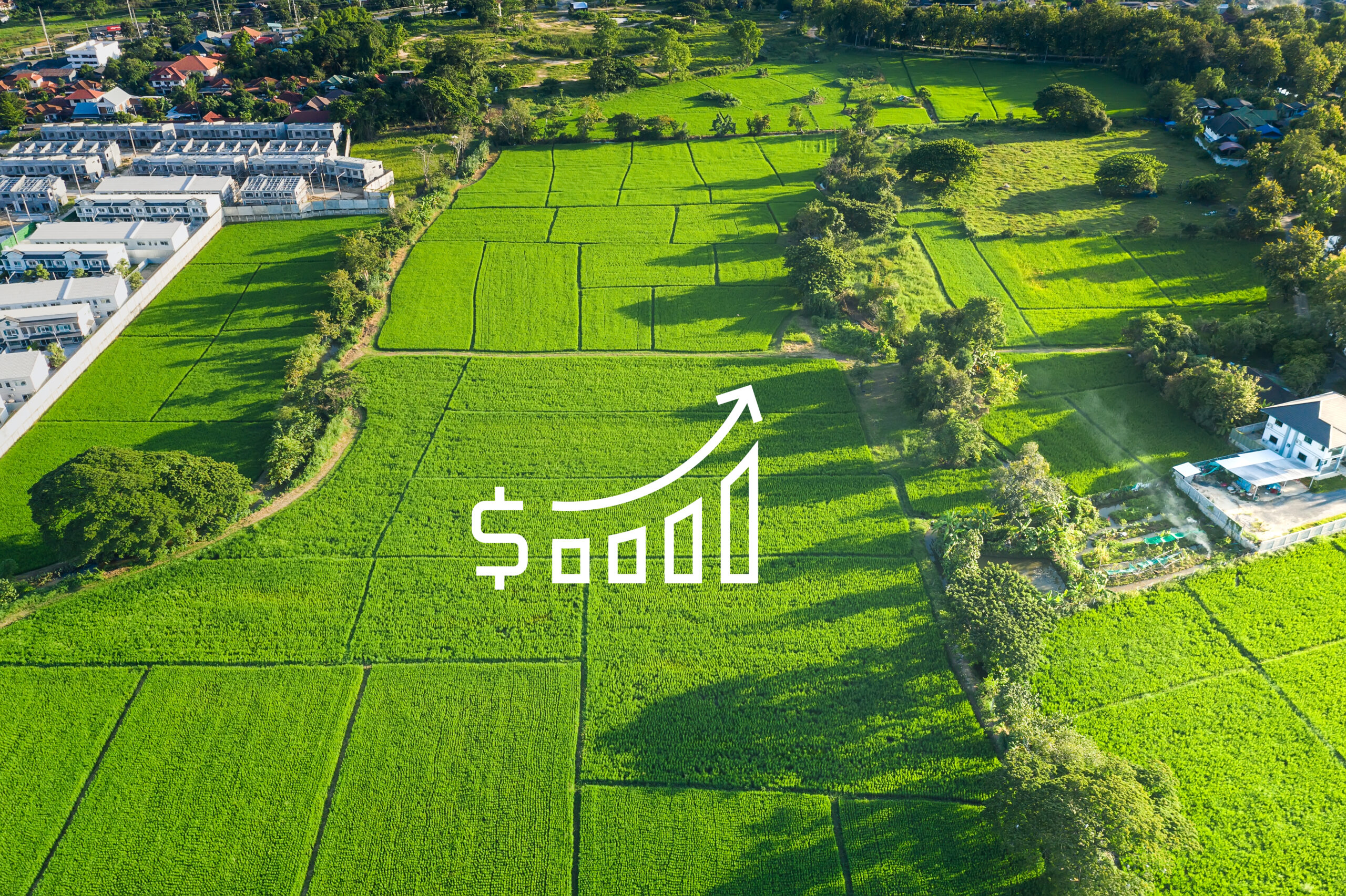Last Updated on October 24, 2023 by Heather McDowell
In 2018, to say the Calgary economy was limping was an understatement. Like many REALTORS ®, Mark Verzyl and his real estate team were caught between a rock and a hard place, and something had to change.
Type-Casted as a Petrostate
The Calgary condominium market was looking bleak. Many people felt as though the nation had given up on, not just Calgary, but Alberta; Alberta would forever be pegged as a petrostate, assumed with all things fuel and pipeline. Widespread speculation was that when the balloon created by the oil and gas sector deflated, or worst popped, that would spell the end for the real estate sector in Calgary; And it very nearly did.
The Calgary Real Estate Board (CREB)’s retrospective shows overall home sales in 2018 dropped by 14.5% compared to the 2017 year. According to CREB, December 2018 units sold were down by 21% when compared with the same time the preceding year. While this issue is definitely a nuanced one, it also didn’t come as a surprise to the Board. Fiscal measures and improvements were expected to drive some of the much-needed rebound of the economy.
However, these didn’t occur on schedule which, in turn, exacerbated existing economic detractors such as a lack of employment creation, increased interest rates, stricter lending guidelines, and, of course, the absence of the hotly-contested pipelines. The result of which, in Alberta, is what many at the time referred to as an economic freefall.
Like many other real estate salespersons in 2018, Mark Verzyl and his team at Greater YYC Group Real Estate saw that something had to change.
Condo Pre-construction 101
Mr. Verzyl is extremely well-versed in many facets of real estate, but he describes his niche as residential condominium pre-construction. If that phrasing gives you pause, Canadian Real Estate Magazine can help. The Residential and Condominium parts of that phrase seem self-explanatory, but the pre-construction may be the linguistic roadblock. Preconstruction in the context of real estate sales is just the selling of units, overwhelmingly condominium units, before the project of building them is complete. Many of the clients of pre-construction are investor clients.

Like a Car on Fire
Mark Verzyl described his assessment of the Calgary condo topography in 2018 and 2019: “Alberta was like a car on fire, and it seemed like no one was going to help us out of it. Calgary, and Alberta at large, took hit after hit to the point that our community had lost all hope. People were really looking for some leadership and I’m not sure that they felt like they were getting it.”
The economic challenges of Alberta started in 2015 with the decline in oil prices which resulted in massive layoffs in 2016. According to the economic dashboard from alberta.ca, this took a toll on the migration to the province.
Reviewing the Calgary market retrospectively, the road to economic recovery during this time was bumpy. In terms of real estate, more balanced market conditions were led by attached and detached segments of the market. The apartment and condo sectors struggled with surplus inventory well into 2019. While some folks would describe what happened in 2018 as an ‘economic downturn’ and others may describe it as a mild recession. Whatever vernacular is used, it was not a positive situation for Alberta to find itself in.
Mr. Verzyl characterised the Albertan economy and its impact on real estate at this time:
“Real estate tends to trail the economy by about 12-18 months. With a downturn in the economy, you may see the implications of that in real estate a year and a half later, and the same on the flip side. 2018 was the bottom of the real estate market in terms of sales. By the beginning of 2019, we could see the sales start to move at a faster pace, however, the price slide was still there, ever so slightly. So the actual recession ended in 2017 but the recovery was from 2018 to at least the end of 2020, and more likely into 2021 due to Covid-19 related economic pressure.”
Albertan Economic Landscape: A Historical Perspective
The economic hardship of the lengthy Alberta recession created a glut of condos on the market. This, when combined with the City of Calgary’s push for higher densities and overbuilding a product to an uninterested buyer, led to the price decline on surplus condo units and ultimately, a lack of sales.
Generally, a pre-construction developer’s production financing is tied to the number of sales in the building. In order to achieve construction financing, the lender will require somewhere in the vicinity of 60% to 75% pre-sales. It becomes extremely important that those units move for the project to continue the forward momentum. But in Calgary in 2018, they just weren’t moving; The market was at a standstill.
So what do you do if you have to move units but the stagnant market conditions have forced almost all the buyers to dry up? You get new buyers, of course. Easier said than done, though.
Pardon the double entendre, but a flight from Calgary to Toronto changed the whole trajectory. Verzyl was invited to an investor event in Toronto. While there, he heard overtures of how the market was becoming cost-prohibitive in Toronto as the skyrocketing demand was chewing through a very limited inventory. Investors were buying up properties at an enormous rate and their voracious appetite, in Verzyl’s mind, needed to be fed.
That’s all it took to plant the seed that would change everything. He texted his business partner and a plan was hatched.
People first
Upon returning to ‘wild rose country’ a deep dive was done on all things Alberta.
Using a people-centric lens, Verzyl investigated which client profiles are coming to Alberta, where they’re coming from, where are they going, where are they staying, what they do for a living, and what their lifestyle is.
Those are the consumers; very important players in this equation. Without them, the investors don’t have anyone to purchase or rent their products. To understand them is to understand the end-user; to not understand them, leaves a big knowledge gap.
Is Calgary positioned for a pre-construction renaissance?
There are quite a few differences from an investor’s perspective between buying in Toronto and buying in Calgary. In Calgary, there are no land transfer taxes, no building levies, no development fees, and no Harmonized Sales Tax, which added up to closing cost savings of between $40,000 and $60,000 per unit.
Ongoing operating costs in Calgary are also favourable to investors; There is no rent control. It’s widely accepted that the Ontario Residential Tenancies Act favours tenants. In Alberta, the edge is given to the landlords. Airbnb is also embraced as a small business, and as a result, most of the property’s cash flow positively. Because of differences in attitudes towards Airbnb, this is becoming exceedingly rare in Toronto.
Lastly, the team looked at the topic at hand through its toughest lens; The economic lens. It took some serious gut-checking to forecast where they felt the Alberta economy was headed; not necessarily where they wanted the economy to go, or where it had to go to make their plan work. They had to take their unflinchingly-honest approach right down to the marrow to assess the plan’s viability. Lastly, they held their strategy up to the light and asked themselves ‘does this still work if there’s a change in either the Federal, Provincial or municipal government?’
Went over like a lead balloon
Initially, when they pitched this approach to their colleagues and builder executives, it went over like a lead balloon. Then the feedback rolled in and it was clear that no one thought this was a good idea. Verzyl was left trying to connect the dots in another, if somewhat of an indelicate, but passionate, way. He said, “If we don’t do this, I’m afraid that you may end up on the unemployment line. The Ontario head office is not going to be footing the bill forever. Eventually, they’ll close the doors until it gets better. I believe that this could be the biggest thing that has happened in Calgary real estate, and we can all be part of it. So, let’s do it and make history, or get out of the way because I am.” That was the underdog moment where all the chips were pushed into the centre pot and Verzyl convinced everyone to go “all in”.

The cleverness is in the approach
Knowing that a salesy pitch would likely cause agents to move on, they created some buzz by reiterating in-person three simple yet impactful messages: (i) Calgary is the best-kept secret for investors (ii) Releasing limited blocks at a time to create some scarcity and tap into that innate desire to be a pack leader for ‘the next big thing in real estate’. (iii) How majestic it is to live in Calgary compared to Toronto, complete with a promotional video.
This gave Toronto-based REALTORS ® the nudge that they needed to reach out to all those in their client database about this opportunity. Soon, the hype of the project was catching fire and getting bigger and bigger.
To hear Verzyl tell it, the first handful of Toronto-based agents really needed to have a vision and see what Verzyl and his team were putting together in order to sell their clients on investing. It took a leap of faith but boy did it pay off!
Launch day came, and all the units that had previously sat stagnant, keeping developers up at night, went viral and sold out within a matter of several weeks. Verzyl was getting so many phone calls that he had to shut his phone off for hours at a time. REALTORS ® were calling, texting, and emailing him trying to get their clients in on the action while getting their own piece of the pie. When calls were coming in from Saudi Arabia, and Dubai, Verzyl knew that they created something that had not only had never been done before but had quite possibly changed the landscape of real estate in Calgary forever. During those few weeks, pre-construction sales in the downtown core, against historical norms for the time of year, exploded for every development.
When Mr. Verzyl tells the story, you can see the obvious passion there, not for the idea that he quarterbacked from seed to sold out, but for Calgary itself- a real estate market suffering from tough economic conditions from a nation that left it to fend for itself. What comes through is that Verzyl is proud not just of the fact that they had hundreds and hundreds of units sold as a result, or the accolades from colleagues that said it would never work, but he is proud to be part of the Calgary underdog story.
Interested in investing in Calgary real estate? Get in touch with Mark Verzyl through his website for more information on why it may be right for you, as well as to see local listings and property styles for buyers.
Heather McDowell is a mother and a REALTOR®. Heather has spent most of her real estate career selling residential real estate, and its leasing and has dealt with the additional complexities of the cottage, timeshare and rural properties, and condominiums. She has dabbled in new construction and is expanding her portfolio to include commercial sales and leasing. Heather is also a dedicated volunteer for both the local women’s shelter and a national hospice organization and is an emerging playwright.
Heather describes her focus as diversifying real estate content that not only addresses national matters but explores those issues unique to each province and territory.
You can contact Heather at heather@crewmedia.ca or find her on socials at:
Facebook – https://www.facebook.com/thestoreytellingcompany/
LinkedIn – www.linkedin.com/in/heather-mcdowell-98134118b
Instagram – https://www.instagram.com/hmcdowellrealty/








